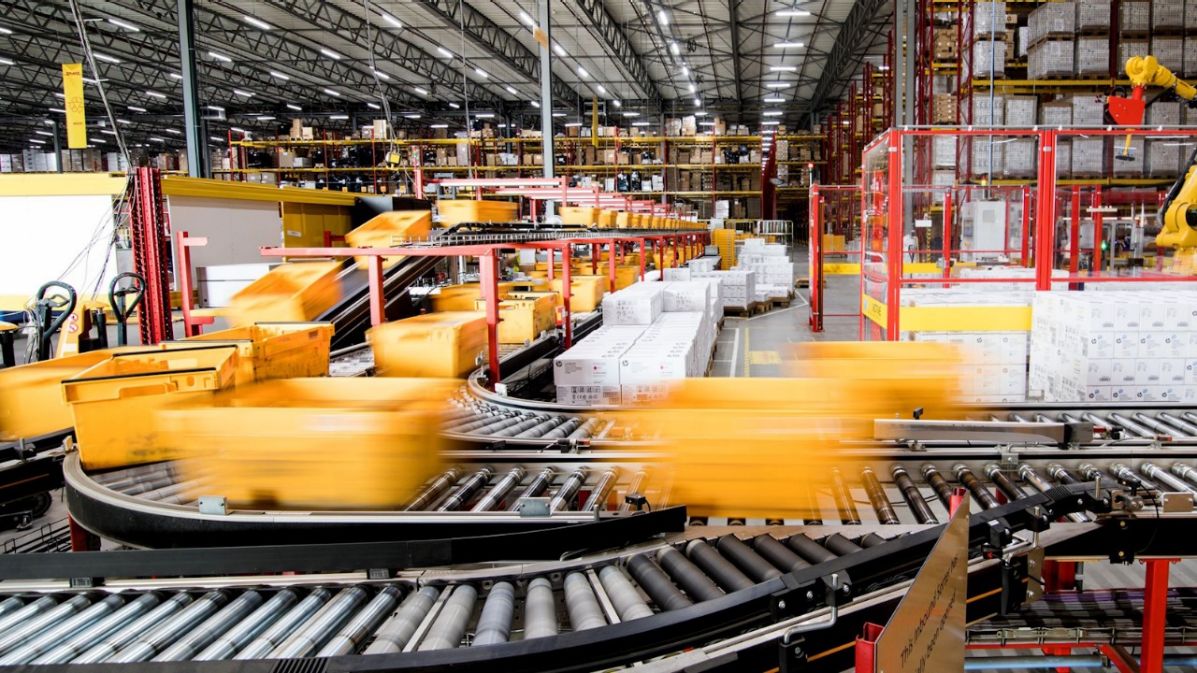DHL Supply Chain Releases Insight 2030 Supply Chain Leaders Survey

AI and cybersecurity emerge as top CEO concerns amid expected disruptions through 2030.
While 99% of executives view the supply chain as critical to business success, 73% expect their supply chains to be more reliant on AI, and 70% anticipate cybersecurity threats to disrupt operations by 2030, according to a survey commissioned by DHL Supply Chain, North America’s leading contract logistics provider.
The new survey, Insight 2030: Opportunities and Challenges for the Supply Chain of the Future, shows that supply chain leaders are expecting a range of disruptive forces through 2030. As a result, a strong majority of respondents expect to become more dependent on established and emerging technologies in the next five years.
The report benchmarks the current state of the supply chain, identifies the most significant changes expected by 2030 and provides insight into the obstacles leaders face in ensuring their supply chains continue to support business objectives.
“Since 2020, supply chains have been in a period of transformation. While supply chain leaders may be hoping for a period of stability in the coming years, the research presented in this report indicates the pace of change may actually be accelerating,” said Mark Kunar, CEO of DHL Supply Chain North America. “While advanced systems and increased automation have become essential in managing the modern supply chain, these technologies also bring their own set of concerns, as well as implementation and management challenges.”
Key findings from the survey include:
- 73% of participants expect their supply chains to become more reliant on AI in the next five years. 68% cited increased dependence on robotics to perform routine tasks, and 63% of respondents see an increased focus on the ability to orchestrate supply chain resources to reduce costs.
- Less than half of participants (44%) said they have deployed warehouse robotics. In addition, only 34% of VP and Director level executives were fully satisfied with their use of the technology.
- Rapid technology evolution also emerged as a key concern with about half of participants pointing to “inadequate technological solutions” (49%) and “outdated systems” (47%), even though nine of ten were using management systems installed or upgraded in the last five years.
- 70% of survey participants anticipate cybersecurity threats will impact their networks through 2030. Other disruptive forces cited, include higher labor costs (69%), labor shortages (66%), natural disasters (63%) and international tensions (62%).
Adopting a Digital Mindset
To meet the demands of an increasingly digital supply chain, DHL’s Accelerated Digitalization Strategy offers a proven path to operational efficiency and resilience, ensuring organizations extract maximum benefits of automation in their operations.
“Supply chain leaders face significant challenges in enabling the improvements required to ensure their supply chain remains a competitive asset in the next five years. The much-needed resources and expertise to help them overcome these barriers can come through partnering with a third-party logistics (3PL) provider,” Kunar said.
Over the past three years DHL Group, the parent of DHL Supply Chain, has invested over €1 billion in automation in its contract logistics division alone. Across its global network, the Group now uses more than 7,500 robots, over 200,000 smart handheld devices, and close to 800,000 IoT sensors to optimize operations, enhance working conditions for employees, and deliver measurable value for customers. Today, more than 90% of DHL warehouses worldwide are equipped with at least one automation or digitalization solution.
“While we’re committed to maximizing the benefits of robotics and automation across our operations, it’s essential that these advancements are supported by a strong cybersecurity foundation,” said Mike Kreider, Chief Information Officer for DHL Supply Chain North America. “Our three-stage framework, focused on prevention, response, and recovery, helps customers reduce risk and minimize the impact of potential threats. No organization can guarantee complete protection, but integrating cybersecurity into a broader supply chain risk management strategy is a critical step toward resilience.”
Survey Methodology
W5, an independent marketing research firm, conducted a quantitative online survey of 350 North American supply chain executives and C-level business leaders from February 12 to March 7, 2025. The Insight 2030 survey targeted leaders from very large enterprises with more than $1 Billion annual revenue but was open to C-Level executives from large enterprises with $500-$1B annual revenue. Participants were screened to ensure they had decision-making power or influence over supply chain operations.
To download the Insight 2030 report, visit Insight 2030: Opportunities and Challenges for the Supply Chain of the Future.





